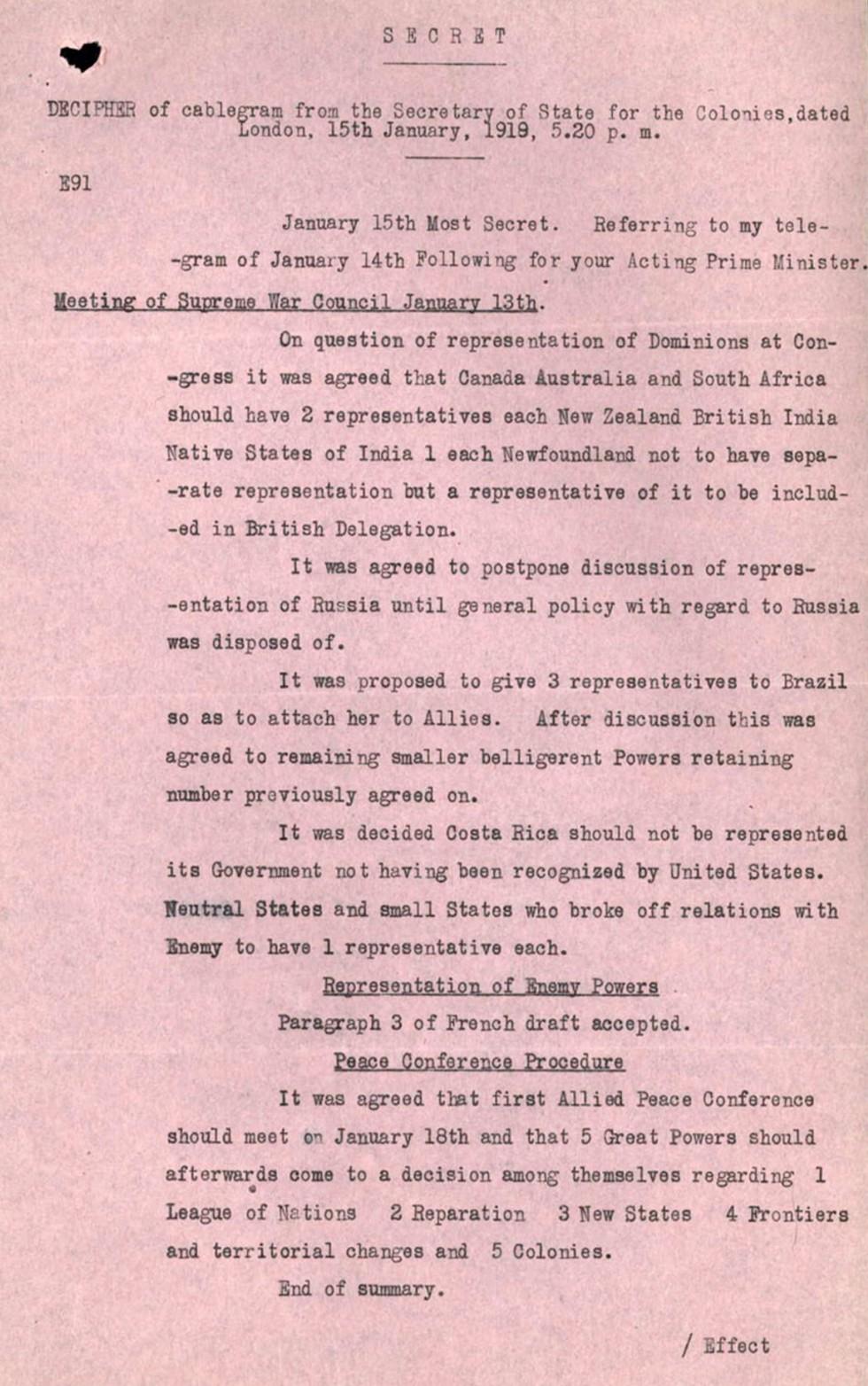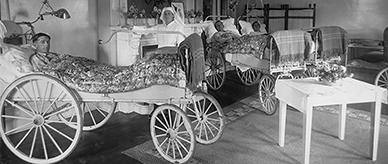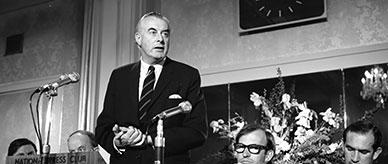


Transcript
[Header:] SECRET
DECIPHER of cablegram from the Secretary of State for the Colonies, dated London, 15th January, 1919, 5.20 p.m.
E91
January 15th Most Secret. Referring to my telegram of January 14th Following for your Acting Prime Minister.
[Underlined heading:] Meeting of Supreme War Council January 13th.
On question of representation of Dominions at Congress it was agreed that Canada Australia and South Africa should have 2 representatives each[,] New Zealand British India Native States of India 1 each[,] Newfoundland not to have separate representation but a representative of it to be included in British Delegation.
It was agreed to postpone discussion of representation of Russia until general policy with regard to Russia was disposed of.
It was proposed to give 3 representatives to Brazil so as to attach her to Allies. After discussion this was agreed to[,] remaining smaller belligerent Powers retaining number previously agreed on.
It was decided Costa Rica should not be represented its Government not having been recognized by United States. Neutral States and small States who broke off relations with Enemy to have 1 representative each.
[Underlined:] Representation of Enemy Powers
Paragraph 3 of French draft accepted.
[Underlined:] Peace Conference Procedure
It was agreed that first Allied Peace Conference should meet on January 18th and that 5 Great Powers should afterwards come to a decision among themselves regarding 1 League of Nations[,] 2 Reparation[,] 3 New States[,] 4 Frontiers and territorial changes and 5 Colonies.
End of summary.
Related themes
Need help with your research?
Learn how to interpret primary sources, use our collection and more.


